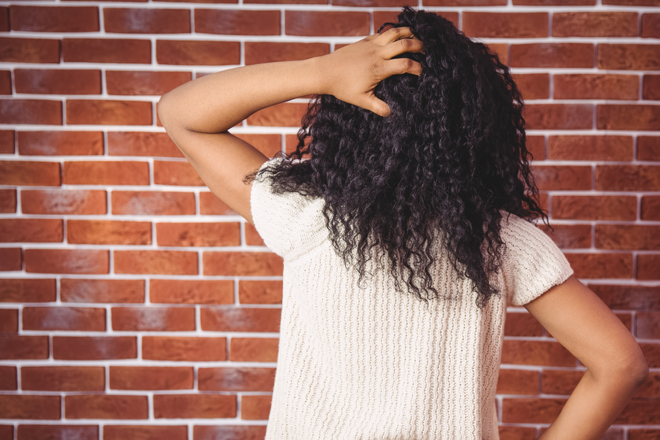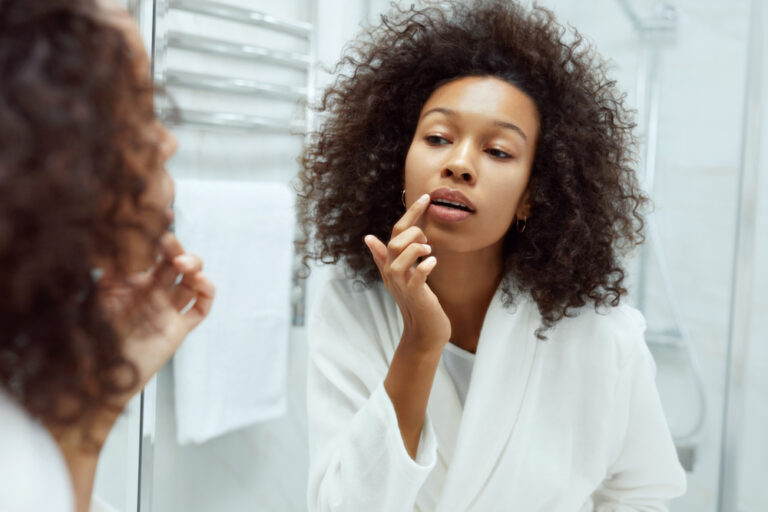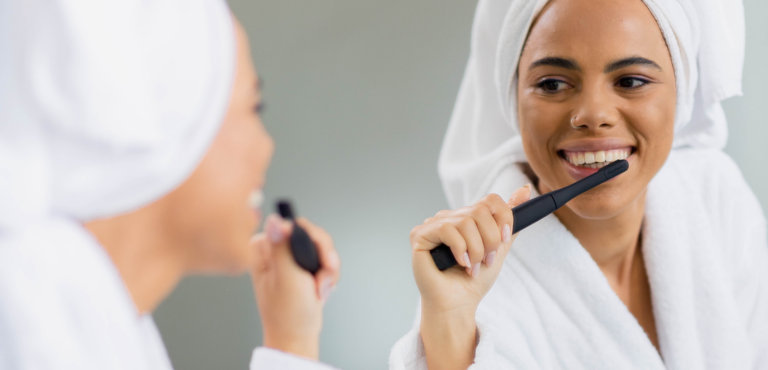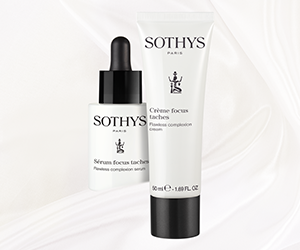Dandruff is a common problem and the bane of many people’s lives. Half of us will suffer the unsightly, sometimes uncomfortable condition. But what causes dandruff and what about theories that these shampoos are bad for the hair, and actually promote flakes? Here are some answers to problem scalps . . .

What is dandruff?
Many of us will have looked down in horror at a fine sprinkling of white flakes on the shoulder of a dark top. But many forms of dandruff do not shed.
Dandruff is characterised by the formation of fine, white or greyish loose skin scales. The epidermis (outer layer of skin) constantly changes and skin cells renew themselves all the time. The cells begin to grow from the base layer deeper in the skin and are gradually pushed to the surface, before coming away from the scalp.
Dandruff occurs when skin cells form too fast, meaning more skin cells are shed and become clumps that can be seen by the naked eye.
This increased epidermal turnover may be caused or exacerbated by abnormally high levels of a fungus called Malassezia globosa, which is a type of yeast and is always found on the scalp, even in those without dandruff.
This yeast is strongly implicated in dandruff, though the nature of this relationship between the two isn’t completely clear. It may introduce an inflammatory immune response in some people because the yeast produces enzymes capable of causing the scalp’s surface cells to increase their shedding rate.
The medical name for dandruff is seborrhoeic dermatitis and in some, it can also affect the face. We often see dandruff and seborrhoeic dermatitis as a genetic condition in families, particularly if it is severe. Those with greasy skin types are most at risk because the yeast likes to grow in sebum.
What type do I have?
There are variations in the severity and form of the condition. With some types of dandruff, the flakes leave the scalp easily. In other cases, they adhere to the scalp and build up to form a thick covering. With simpler forms of dandruff, the scalp is usually a normal colour. With the more severe forms of the condition, there’s an underlying inflammation that renders scalp tissues more tender and sensitive than with simple dandruff.
Other factors such as stress or diet may also trigger the condition. This is because stress increases sebum production and the sebum feeds the yeast.
Does dandruff shampoo work?
If the underlying cause isn’t treated properly, the scales will quickly return. Treatments including ingredients such as coal tar, salicylic acid and selenium sulphide can be considered a little dated compared to the more sophisticated antimicrobials of recent years. These work by softening the scales so they can be washed away. However, they have been superseded in effectiveness by shampoos that contain drugs which control the level of micro-organisms on the scalp. These newer options are also less harsh, meaning they can be used often.
If your dandruff persists, visit your GP, who can refer you to a dermatologist. Steroid lotions or creams and antifungal tablets are usually successful in persistent cases.
For facial seborrhoeic dermatitis, a GP may prescribe a topical anti-fungal cream or a combination of a low-strength topical steroid with an anti-fungal. Should you suffer from severe dandruff for more than six weeks that doesn’t respond to anti-dandruff shampoos, see your GP, it may be a more serious problem, such as psoriasis.
Does washing make it worse?
Some say using anti-dandruff shampoos exacerbates the condition, or that once you start using them you can’t stop as the scalp becomes reliant on the medication.
This is a myth as the shampoo has a direct chemical effect on the yeast, but it grows back so you need to maintain use. So it’s about controlling the condition, rather than curing it.
Many women are turned off by some formulas as they have a reputation for stripping colour from the hair. Again, this is a myth. Most leading brands have improved formulations.
Are there natural options?
Dandruff is caused by fungi, so treating topically with a hair rinse containing loose-leaf rosemary, tea-tree oil or activated charcoal may help. Rosemary contains anti-fungal essential oils and tea-tree oil has been shown to have anti-fungal activity against a wide range of fungi. Topical aloe-vera gel has also shown improvement in seborrhoeic dermatitis due to its anti-inflammatory properties. Apply it topically at night and rinse in the morning. Anti-itch creams can also help.
Coal-tar shampoo is capable of slowing down the epidermal turnover, which is why it has been used in the treatment of psoriasis and other skin disorders and Juniper tar [a tree tar] is more effective than coal tar and tends to be used in more modern treatments.
So the good news is that if you keep using your medicated shampoo, you can easily keep dandruff under control.





2 Responses
I know someone with this problem, will def show them this article
I know someone who has psoriasis. It does not look good at all